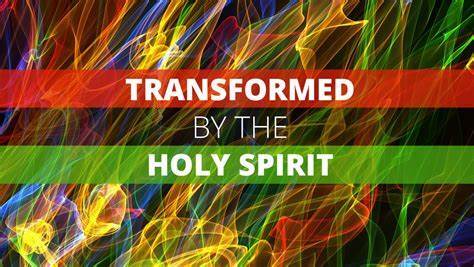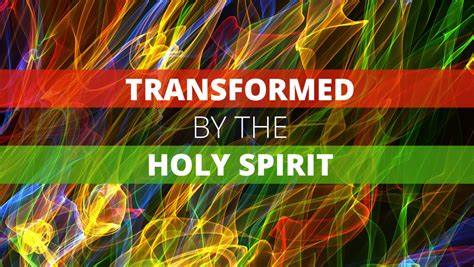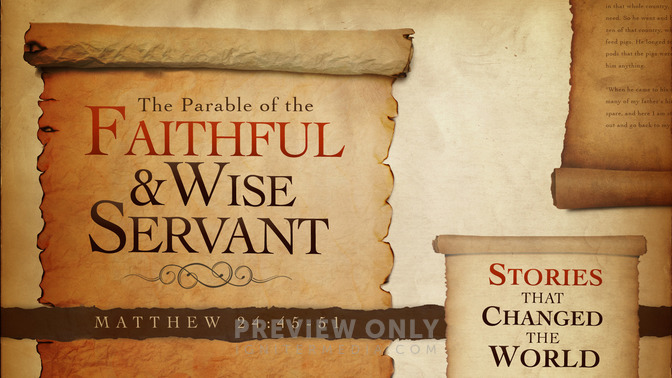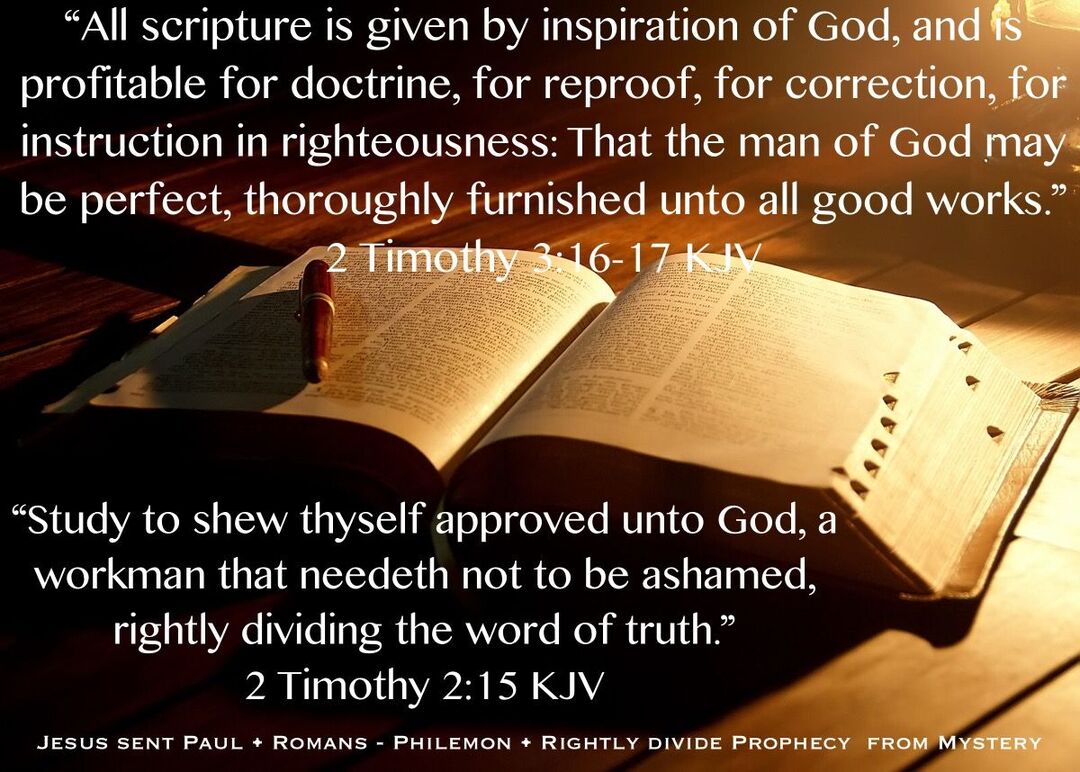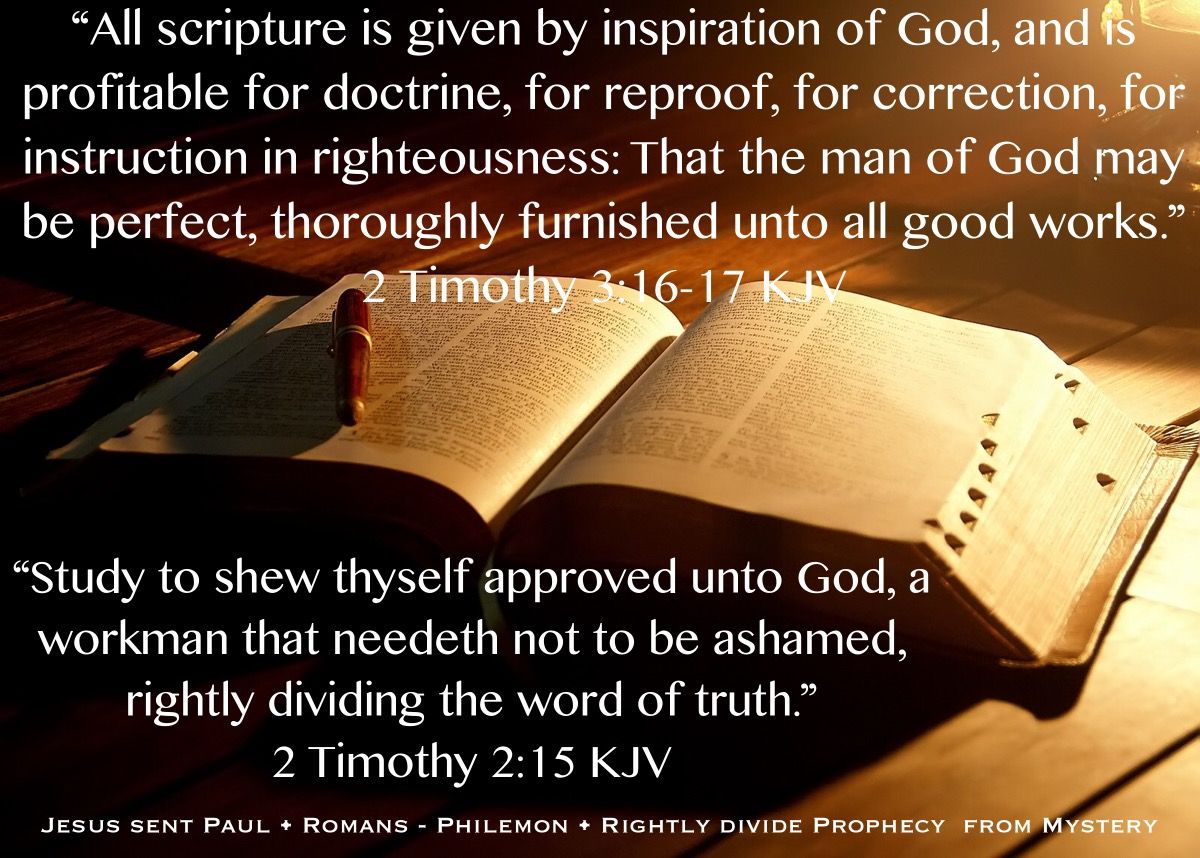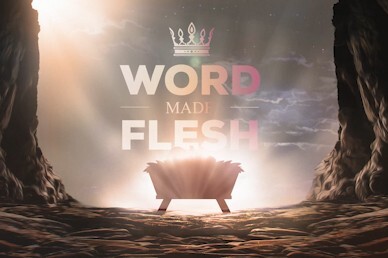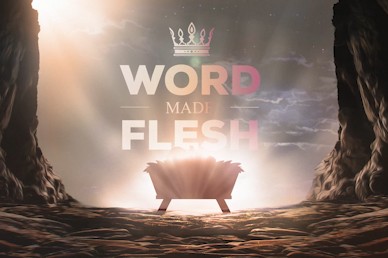In the beginning God created the heaven and the earth. And the earth was without form, and void; and darkness was upon the face of the deep. And the Spirit of God moved upon the waters. (Genesis 1:1-2, KJV)
These words launch the sacred narrative, revealing God's eternal act in perfect harmony—one God eternally existing as Father, Son, and Holy Spirit: the Father decreeing, the Spirit hovering in life-giving power, and the Word (the Son) executing light into being. "And God said, Let there be light: and there was light" (Genesis 1:3). This divine utterance pierces chaos, symbolizing order, holiness, and life. The Word is no created being but God Himself, co-eternal and co-equal with the Father and Spirit, sharing one divine essence in perfect unity—distinct Persons, inseparable in nature, will, and work. As we shall see, Jesus—the Word made flesh—cannot be created, for He is the One by whom all things were made. "All things were made by him; and without him was not anything made that was made" (John 1:3). This truth echoes through the apostles' writings, culminating in Revelation's eternal light, where God and the Lamb illuminate forever.
In this blog, we will trace Scripture's golden thread: from primordial light to apostolic affirmations in John and Colossians, bolstered by the three who bear witness to Christ's deity. We will affirm His eternal nature—self-existent and divine—countering any notion of origination. For only the eternal can precede and sustain creation, as "He is before all things, and by him all things consist" (reside in) (Colossians 1:17). May this journey stir in you a glorious worship to the one true God: "O Lord, how manifold are thy works! in wisdom hast thou made them all" (Psalm 104:24).
In the opening verses of Genesis, we behold a formless void shrouded in darkness, yet the Spirit of God moves upon the waters with gentle, omnipotent purpose—preparing the canvas for divine artistry and infusing it with the breath of life. This "moving" or hovering of the Spirit is a beautiful picture of God's caring presence. Then God said, "Let there be light," and light burst forth through the Word (Jesus Christ), not merely physical illumination but a profound symbol of God's holiness dispelling shadows, deception, and chaos. This light foreshadows the ultimate redemption, where "the people that walked in darkness have seen a great light" (Isaiah 9:2), pointing directly to Christ.
The psalmist bridges this creation moment to the New Testament revelation: "By the word of the Lord were the heavens made; and all the host of them by the breath of his mouth" (Psalm 33:6), harmonizing the Father's decree, the Word's execution, and the Spirit's breath as one God in action. John's Gospel unveils the mystery further: "In the beginning was the Word, and the Word was with God, and the Word was God. The same was in the beginning with God" (John 1:1-2). Here, the Logos—God's divine reason and expression—is not a later creation but eternally existent, distinct in person yet one in essence with the Father. Amid debates over exact phrasing, the core truth shines: This Word is Jesus incarnate (John 1:14), declaring His timeless deity when He says, "Before Abraham was, I am" (John 8:58), echoing God's eternal name in Exodus 3:14. The prophet Micah affirms the Messiah's origins: "whose goings forth have been from of old, from everlasting" (Micah 5:2). In this Word dwells life itself, and that life is the light of men, radiating undimmed into the darkness (John 1:4-5)—Jesus, the eternal Word of God, through whom the Father created all things and brought everything into existence: "All things were made by him; and without him was not any thing made that was made" (John 1:3). He did not create Himself; He is God's Word, the uncreated Creator who holds all in being.
Yet, so much debate and argument have swirled around the precise wording of John 1:1—"the Word was God" versus alternative renderings like "was a god"—often missing the forest for the trees in theological battles that have divided believers for centuries. God does not command us to win debates but to believe in His Son for eternal life (John 3:16: "Whosoever believeth in him should not perish"), and to spread this gospel to every creature. These ongoing debates deflect from the verse's heart and the verses that follow:
John 1
3 "All things were made by him; and without him was not any thing made that was made.
4 In him was life; and the life was the light of men."
Jesus is God's Word; God speaks, and the Word executes. "Let there be light."
Central to this revelation is the irrefutable truth that Jesus cannot be created precisely because He is the Creator—a logical and scriptural absolute that places Him outside the realm of contingent beings. If He originated everything, He cannot originate from anything Himself, for creators inherently precede and transcend their works; self-creation is an impossibility, as "every house is builded by some man; but he that built all things is God" (Hebrews 3:4). John's proclamation drives this home: "All things were made by him; and without him was not any thing made that was made" (John 1:3). The emphatic double negative leaves no loophole—every star, soul, speck and atom owes its existence to Him, echoing the creative command in Genesis and excluding any possibility of His own making.
This eternal status unfolds richly across Scripture. His pre-existence shines in John 1:1-2, where the Word simply "was" in the beginning, not "became" at a point in time, and in John 17:5, where He shares glory with the Father "before the world was," including His role as redeeming Lamb foreordained before the foundation (1 Peter 1:20: "Who verily was foreordained before the foundation of the world, but was manifest in these last times for you"). The child born in Bethlehem is called "The everlasting Father, The mighty God" (Isaiah 9:6), titles reserved for the eternal Yahweh. He forms all things directly, as in Colossians 1:16-17 ("by him were all things created... he is before all things"), Hebrews 1:2-3 (God made the worlds "by whom," upholding them by His power), and 1 Corinthians 8:6 ("by whom are all things"). His divine attributes include self-existent life, shared eternally with the Father: "the Father hath life in himself; so hath he given to the Son to have life in himself" (John 5-26)—not borrowed or started, but inherent like the Father's own endless existence. He is equal with God, "being in the form of God" without claiming something extra (Philippians 2:6), and holds "all the fulness of the Godhead bodily" (Colossians 2:9).
He stands distinguished from all creatures: Angels worship Him rather than rival Him (Hebrews 1:5-6), and His Melchizedek-like priesthood knows "neither beginning of days, nor end of life" (Hebrews 7:3). Even Revelation 3:14's "beginning of the creation" means source or ruler (arche), as in Proverbs 8:22-23 where Wisdom (Christ) is "from everlasting." Explicit denials abound: "Before me there was no God formed" (Isaiah 43:10), and as the "only begotten Son" He declares the unseen God (John 1:18). Potential misreadings, like "firstborn" in Colossians 1:15, denote preeminence—not origination—as with David made "firstborn" as highest king (Psalm 89:27). Only the eternal can precede creation because contingent things (everything that depends on something else to exist, like all created matter and beings) require a cause and a starting point; God alone is independent, giving life without needing any (Acts 17:24-25). Jesus embodies this: "I am Alpha and Omega... the Almighty" (Revelation 1:8, 17-18), the eternal One who sustains all without beginning or end.
The Apostle Paul's praises to God in Colossians harmonize perfectly with John 1:1-2, exalting the eternal Son amid false teachings that would diminish Him to a mere emissary or angel. "Who is the image of the invisible God, the firstborn of every creature: For by him were all things created, that are in heaven, and that are in earth, visible and invisible, whether they be thrones, or dominions, or principalities, or powers: all things were created by him, and for him: And he is before all things, and by him all things consist" (Colossians 1:15-18). Here, "firstborn" (prototokos) signifies preeminence and heirship, not creation—as God promised David, "I will make him my firstborn, higher than the kings of the earth" (Psalm 89:27)—for the verses immediately affirm He creates those very realms, standing before and sustaining them.
The parallels with John reveal profound oneness: John's comprehensive "all things" expands in Colossians to include heavenly hierarchies and invisible powers (like angels and spiritual authorities), refuting any intermediary creators and asserting Christ's absolute dominion, as everything in the universe—seen or unseen—is made through Him alone. The agency is identical—"by him" as the instrumental cause, mirroring the Word through which God spoke in Genesis and Psalm 33:6. Yet Colossians adds depth: Creation is not only "by" Him but "for" Him, orienting all existence toward His glory, as He shared pre-world splendor with the Father (John 17:5). This sustenance—"by him all things consist"—portrays Him as the divine glue holding atoms and angels together, echoing Hebrews 1:3's "upholding all things by the word of his power." The fullness of deity dwells in Him (Colossians 1:19; 2:9), making separation impossible: If God creates alone yet through the Son (Isaiah 44:24), they are one essence, mutually indwelling (John 14:10: "I am in the Father, and the Father in me"). This unity counters heresies, affirming the Son's eternal role in planning (Father), executing (Son), and quickening (Spirit implied, as "the Spirit quickeneth" in John 6:63).
The passage in 1 John 5:7-8 (KJV) beautifully complements the themes of divine unity and historical testimony, emphasizing how God's eternal truth is confirmed in time through Jesus's life and work. Even focusing on the earthly witnesses that appear in all manuscripts—the Spirit, the water, and the blood, these three agree in one—these elements provide strong evidence against early false teachings that tried to separate Jesus's divine and human natures (such as ideas that the spiritual "Christ" only temporarily descended on the man Jesus at baptism and left before the cross). Instead, they affirm the eternal Creator's full incarnation from start to finish: Jesus came "by water and blood" (1 John 5:6), not by water only. The Spirit, who testifies because "the Spirit is truth," is the Holy Spirit who hovered in creation and continues to bear witness in believers' hearts (Romans 8:16) and through events like the baptism. The water recalls that baptism where the Father's voice declared "This is my beloved Son" (Matthew 3:17), marking the beginning of His public ministry. The blood points to the crucifixion, where water and blood flowed from His side (John 19:34), symbolizing complete atonement and proving His real, physical death for sins (Hebrews 9:12). These historical markers unite to show Jesus as the eternal "way, the truth, and the life" (John 14:6), with direct affirmations like Thomas's cry, "My Lord and my God" (John 20:28), and the Father's address about Jesus: "Thy throne, O God, is for ever" (Hebrews 1:8).
The declaration "God is light, and in him is no darkness at all" (1 John 1:5) finds perfect resonance in the Word as "the true Light, which lighteth every man that cometh into the world" (John 1:9)—a oneness of essence where the Father's purity radiates through the Son. Jesus affirms, "He that hath seen me hath seen the Father" (John 14:9), making His light the visible expression of the invisible God. This shared radiance first ordered creation's dawn by separating light from darkness (Genesis 1:3-4), establishing moral and spiritual order from the void. In redemption, it exposes sin by revealing truth and convicting hearts, as Jesus declares, "I am the light of the world: he that followeth me shall not walk in darkness, but shall have the light of life" (John 8:12), drawing sinners to repentance and freedom (John 3:19-21). Eternally, it overcomes all darkness without fail or fluctuation, for God is the "Father of lights, with whom is no variableness, neither shadow of turning" (James 1:17)—unchanging in His gifts of wisdom and salvation, ensuring victory over evil and the promise of a shadowless future (Revelation 21:25).
What dawns in Genesis's spoken light reaches eternal fulfillment in Revelation, where the holy city needs no sun or moon, "for the glory of God did lighten it, and the Lamb is the light thereof" (Revelation 21:23; see also 22:5). Here, the eternal Word—once active in creation's beginning—tabernacles forever as the Lamb slain yet victorious, sharing the throne with the Father (Revelation 22:1). As Alpha and Omega, the Almighty who was dead and lives (Revelation 1:8, 17-18), He receives worship alongside the Ancient of Days, their oneness sealing history's arc. In this radiant kingdom, night vanishes, and the redeemed walk in His light, heirs of the eternal Creator who holds all together from everlasting to everlasting.
As many as receive Him become children of God (John 1:12), transformed by the One who made and sustains us. In a world where good is seen as evil, and evil as good, let the light of Jesus illuminate your path and guide you to His living water. Worship the Lamb who is worthy to receive power, riches, wisdom, strength, honor, glory, and blessing (Revelation 5:12)—for in the beginning, through the middle of time, and to the endless ages, He is the great I AM, the unchanging God who became flesh and was crucified to pay for our sins. May your life reflect His Glory, walking as children of light until we see Him face to face. Amen.
